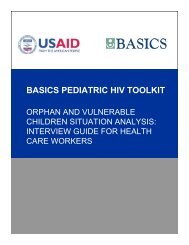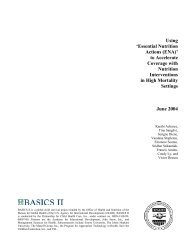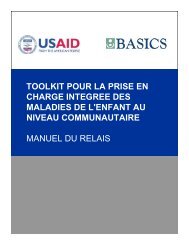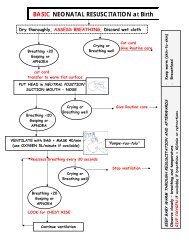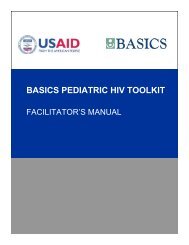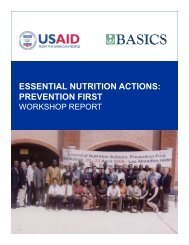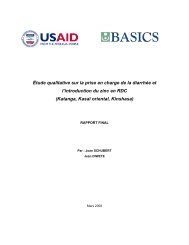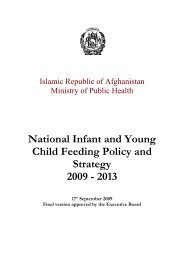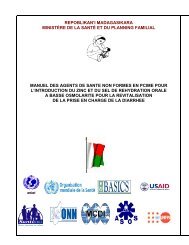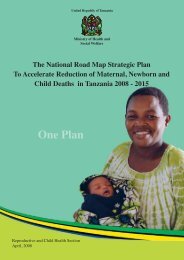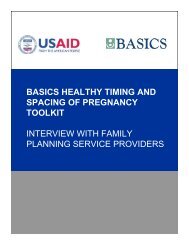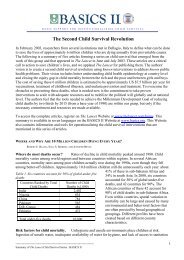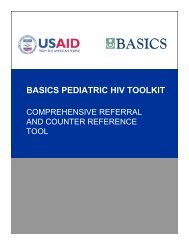Integrated Maternal and Newborn Care Basic Skills Course ...
Integrated Maternal and Newborn Care Basic Skills Course ...
Integrated Maternal and Newborn Care Basic Skills Course ...
You also want an ePaper? Increase the reach of your titles
YUMPU automatically turns print PDFs into web optimized ePapers that Google loves.
Reference Manual<br />
Scientific evidence supporting AMTSL<br />
Giving a uterotonic drug to prevent PPH promotes strong uterine contractions <strong>and</strong> leads to<br />
faster retraction <strong>and</strong> placental separation <strong>and</strong> delivery. Several large, r<strong>and</strong>omized controlled<br />
trials have investigated whether physiologic management or active management is more<br />
effective in preventing PPH. These trials have consistently shown that active management<br />
provides several benefits for the mother compared to physiologic management. Table 7<br />
provides detailed results from two important studies comparing active <strong>and</strong> physiologic<br />
management of the third stage of labor.<br />
These results show that only 12 women need to receive AMTSL to prevent one case of PPH.<br />
This means that AMTSL is a very effective <strong>and</strong> cost-efficient public health intervention. These<br />
studies also confirm that AMTSL decreases:<br />
PPH<br />
• the incidence of PPH<br />
• the length of the third stage of labor<br />
• the percentage of third stages of labor lasting longer than 30 minutes<br />
• the need for blood transfusion<br />
• the need for uterotonic drugs to manage PPH<br />
Table 7. Bristol <strong>and</strong> Hinchingbrooke Study Results Comparing Active <strong>and</strong><br />
Physiologic Management of the Third Stage of Labor<br />
Factors<br />
Study<br />
Active<br />
Management<br />
Physiologic<br />
Bristol 5 5.9% 17.9%<br />
Hinchingbrooke 6.8% 16.5%<br />
Average length of the third stage Bristol 5 minutes 15 minutes<br />
of labor Hinchingbrooke 8 minutes 15 minutes<br />
Third stage of labor longer than Bristol 2.9% 26%<br />
30 minutes Hinchingbrooke 3.3% 16.4%<br />
Blood transfusion needed<br />
Bristol 2.1% 5.6%<br />
Hinchingbrooke 0.5% 2.6%<br />
Additional uterotonic drugs Bristol 6.4% 29.7%<br />
needed to manage PPH Hinchingbrooke 3.2% 21.1%<br />
5 Prendiville et al. 1988. The Bristol third stage trial: active versus physiological management of the third<br />
stage of labour. BMJ, 297: 1295–1300.<br />
<strong>Integrated</strong> maternal <strong>and</strong> newborn care<br />
<strong>Basic</strong> skills course<br />
65



